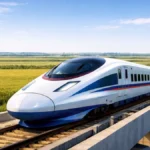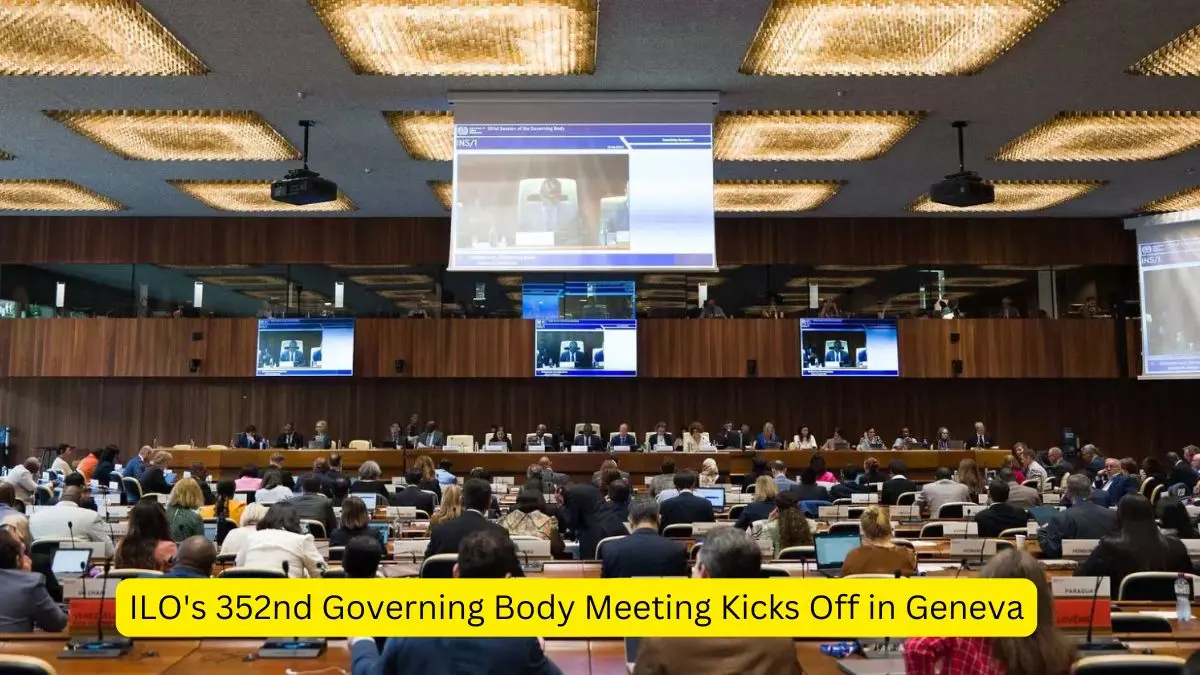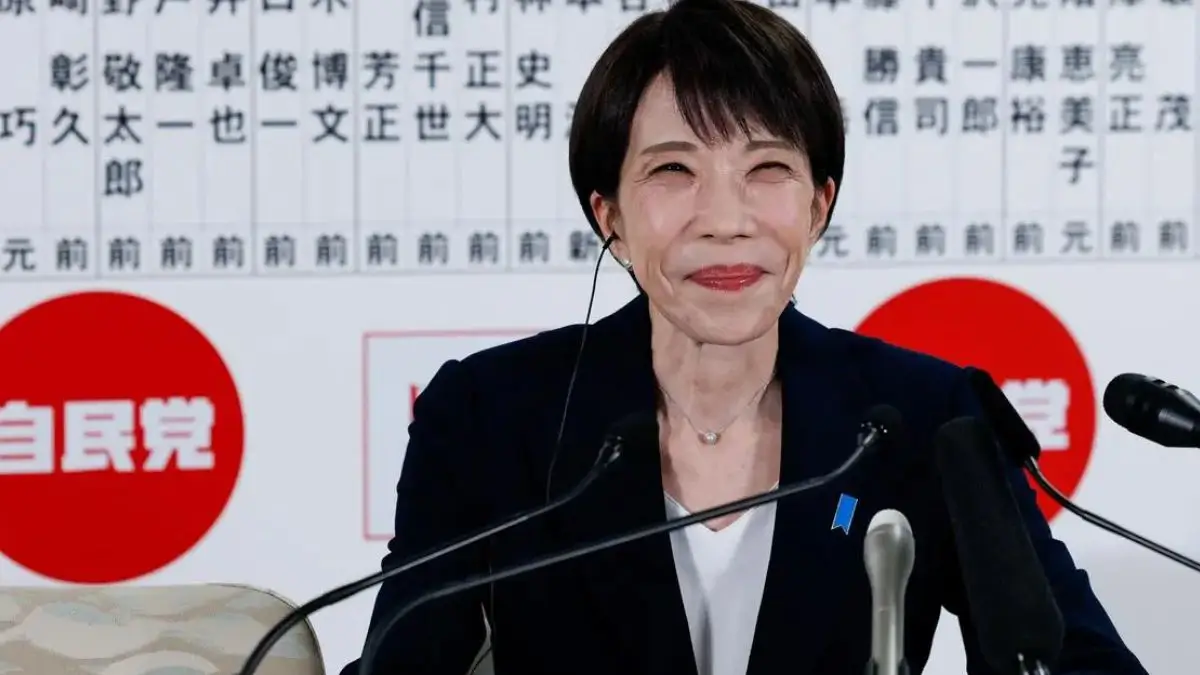ILO’s 352nd Governing Body Meeting Kicks Off in Geneva
The 352nd Governing Body Meeting of the International Labour Organization (ILO) commenced in Geneva, Switzerland, bringing together representatives from member states to discuss crucial issues surrounding global labor standards, social protection, and employment policies. This pivotal meeting is set against the backdrop of evolving labor markets and the increasing need for policies that can adapt to the changing world of work.
Key Agenda Items
One of the primary focuses of this meeting is to review and advance the implementation of international labor standards, particularly those that aim to improve working conditions globally. The agenda includes discussions on the ongoing impacts of the COVID-19 pandemic on employment, the future of work in light of technological advancements, and measures to enhance social protection systems. Member states are expected to present their reports and share best practices in addressing labor challenges exacerbated by recent global crises.
Importance of Social Dialogue
The significance of social dialogue among stakeholders—including governments, employers, and workers—will be a key theme during the discussions. The ILO emphasizes that effective dialogue is essential for achieving sustainable development and equitable labor markets. This meeting serves as a platform for member states to collaborate on strategies that foster inclusive growth and protect workers’ rights.
Outcomes and Resolutions
The ILO’s governing body meetings often lead to important resolutions that guide the organization’s work in promoting fair labor practices worldwide. The outcomes of this meeting are expected to influence labor policies in various member countries, with a focus on creating jobs, ensuring fair wages, and enhancing occupational safety and health standards.
Concluding Thoughts
As the ILO convenes in Geneva, the outcomes of the 352nd Governing Body Meeting will have far-reaching implications for labor policies globally. With the changing dynamics of work and the increasing need for protective measures for workers, this meeting underscores the importance of international cooperation in addressing labor issues.

Why This News is Important
Significance for Global Labor Standards
The ILO’s 352nd Governing Body Meeting is crucial as it represents a collective effort by member states to set and uphold international labor standards. These standards are vital for ensuring fair treatment of workers globally and fostering decent work environments.
Response to Contemporary Challenges
In light of recent global challenges, including the COVID-19 pandemic and technological advancements, the discussions in Geneva will address pressing labor issues that affect millions of workers. The meeting’s resolutions will help shape policies that can better respond to these challenges, ensuring that workers’ rights are protected.
Promoting Social Protection
The emphasis on enhancing social protection systems highlights the need for robust safety nets for workers, especially in vulnerable sectors. The meeting is an opportunity for member states to share strategies and best practices that can lead to stronger social protection frameworks.
Encouraging Collaboration
This meeting fosters collaboration between governments, employers, and workers, which is essential for creating inclusive labor markets. By encouraging social dialogue, the ILO aims to promote policies that are beneficial for all stakeholders.
Future Policy Directions
The outcomes of the meeting will provide direction for future labor policies and initiatives. By discussing and agreeing on key resolutions, member states can work towards achieving sustainable and equitable labor practices worldwide.
Historical Context
Background of the ILO
The International Labour Organization (ILO) was established in 1919 as part of the Treaty of Versailles that ended World War I. It aims to promote social justice and fair labor standards across the globe. The ILO is the first specialized agency of the United Nations and has played a crucial role in shaping labor laws and standards that protect workers’ rights.
Evolution of Labor Standards
Over the years, the ILO has adopted numerous conventions and recommendations to address various labor issues, including child labor, forced labor, and discrimination in the workplace. These standards have evolved to meet the changing dynamics of the global labor market and to respond to emerging challenges such as globalization and technological change.
Recent Developments
The COVID-19 pandemic has significantly impacted the labor market, prompting the ILO to focus on recovery efforts and the future of work. Recent meetings have prioritized the need for resilience in labor markets and the protection of workers in precarious employment situations, further underscoring the importance of the current governing body meeting.
Key Takeaways from “ILO’s 352nd Governing Body Meeting”
| Serial No. | Key Takeaway |
|---|---|
| 1 | The meeting addresses global labor standards and policies. |
| 2 | Emphasis on the impact of COVID-19 on employment. |
| 3 | Focus on enhancing social protection systems for workers. |
| 4 | Encouragement of social dialogue among stakeholders. |
| 5 | Outcomes will guide future labor policies worldwide. |
Important FAQs for Students from this News
1. What is the ILO?
The International Labour Organization (ILO) is a specialized agency of the United Nations established in 1919. It aims to promote social justice and fair labor standards globally.
2. What is the purpose of the ILO’s Governing Body Meetings?
The ILO’s Governing Body Meetings are convened to discuss and set international labor standards, address pressing labor issues, and guide the organization’s policies and actions.
3. Why is the 352nd Governing Body Meeting significant?
This meeting is crucial as it addresses the impacts of the COVID-19 pandemic on labor markets, emphasizes the need for social protection, and promotes dialogue among member states regarding labor policies.
4. How do ILO resolutions affect member countries?
Resolutions from ILO meetings influence national labor laws and policies, encouraging member countries to adopt fair labor practices and improve workers’ rights.
5. What topics are typically discussed in these meetings?
Topics often include the implementation of international labor standards, social protection, employment policies, and the impact of technological changes on the workforce.
Some Important Current Affairs Links

















